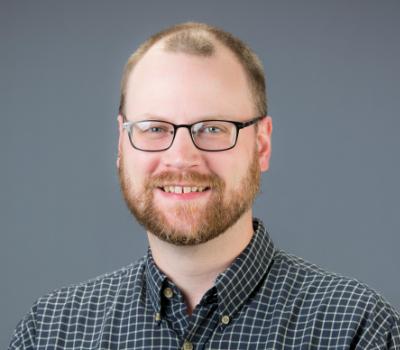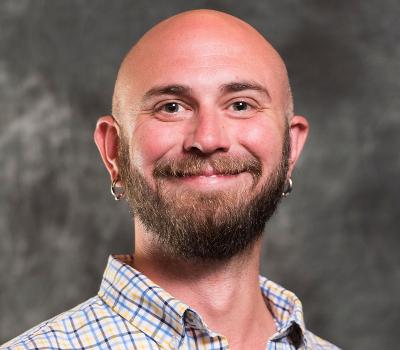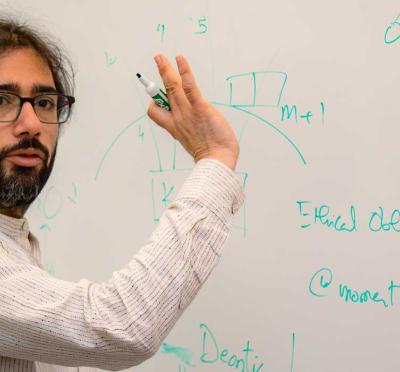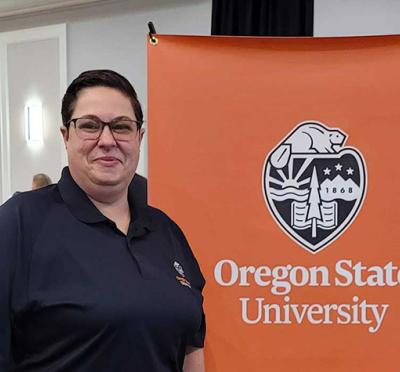In August 2020, alumnus John Lambert (’20 B.S., Computer Science) posted the following on his LinkedIn account:
In the past two years I...
- Quit my job to pursue a post-baccalaureate in computer science.
- Sold my house to fund the post-baccalaureate.
- Landed a new role as a software engineer in a different state.
- Got accepted into computer science graduate program at Georgia Institute of Technology.
If you feel like you're stuck, sometimes you need to do something drastic. #neverstop
Lambert, who grew up in New Jersey and Indiana, attended Ball State University and earned a degree in computer technology in 2014. With his newly-minted credentials, Lambert got a job in an IT support role at Interactive Intelligence, working on tasks such as networking, router and switch configurations, and server administration.
In 2018, after two successful years in his career, Lambert felt he came to a dead end in the IT field. “There wasn't really a position I could try to transition into within the company,” he said. “I tried to get into some software engineering roles, but I didn't really have good fundamentals in software engineering.”
That’s when Lambert decided he needed to get additional training to advance in his career.
He looked at coding boot camps but determined he needed a computer science degree in order to get the types of software engineering jobs he wanted. He found that most online bachelor’s degree programs require students to take core curriculum classes, which would take a lot of time and money for Lambert, who had already gone through that before. And he wasn’t qualified for master’s degree programs based on his previous degree.
When he learned about Oregon State’s postbaccalaureate online degree in computer science, it was the perfect fit. With this program, Lambert wouldn’t have to retake core curriculum courses, allowing him to earn a bachelor’s degree sooner.
Lambert was accepted to the program in 2018 and took the plunge.
During his first year, Lambert continued to work full time while taking classes, but after a year decided to quit his job, sell his house, and concentrate on completing the program more quickly. “I ended up moving into the downtown area of the city, out of the suburbs just to get a different change of pace,” he said.
Although he used the profit from the sale of his house to help pay for the program, he noted that the tuition for the Oregon State program was far less than other programs he considered.
Lambert landed an internship at Principal Financial Group in Des Moines, Iowa in 2019 and after he graduated with his bachelor’s degree in 2020, the company hired him as a full-time software engineer.
He feels the Oregon State program prepared him well for his new career, giving him a good foundation to build upon because of the quality instruction and hands-on projects.
“The web development and cloud application development courses were especially helpful. These courses gave me hands-on development experience with real world cloud tools which I use in my current role as we migrate our applications to Amazon Web Services.”
He also appreciated the communication with instructors, teaching assistants, fellow students, and alumni through the program’s Slack channel, where everyone was always glad to help with answers to questions and advice on just about anything.
“There were always other students there who had either taken a class previously or who were in that class with me that understood what was going on,” he said. “So you don’t really feel like you’re alone in the program.”
Online Program Director Benjamin Brewster added, “John’s contributions to the online community discussions are exactly what helps others feel connected and welcome. Students tend to band together, even amidst their disparate lives and circumstances, joining forces and forming friendships. It’s wonderful to see everyone grow and learn together.”
Lambert has some advice of his own for students who are starting out.
“Start conservative. If you haven’t been in school for a while and you’re working full-time and you have life commitments, take one class to see if it’s for you,” he said. “You have to be diligent and self-motivated for this kind of program.”
He also says, though, that students shouldn’t get flustered about feeling like the coursework is over their heads because there is plenty of help available.
Lambert is not stopping anytime soon and has set his sights on even bigger things. This fall, Lambert began an online master’s degree program in computer science at Georgia Institute of Technology, and will continue to work full-time while earning his degree.
Oregon State University’s online computer science programs are top-ranked nationally, available worldwide at students’ own pace and schedule, and are the university’s largest and fastest-growing programs.





